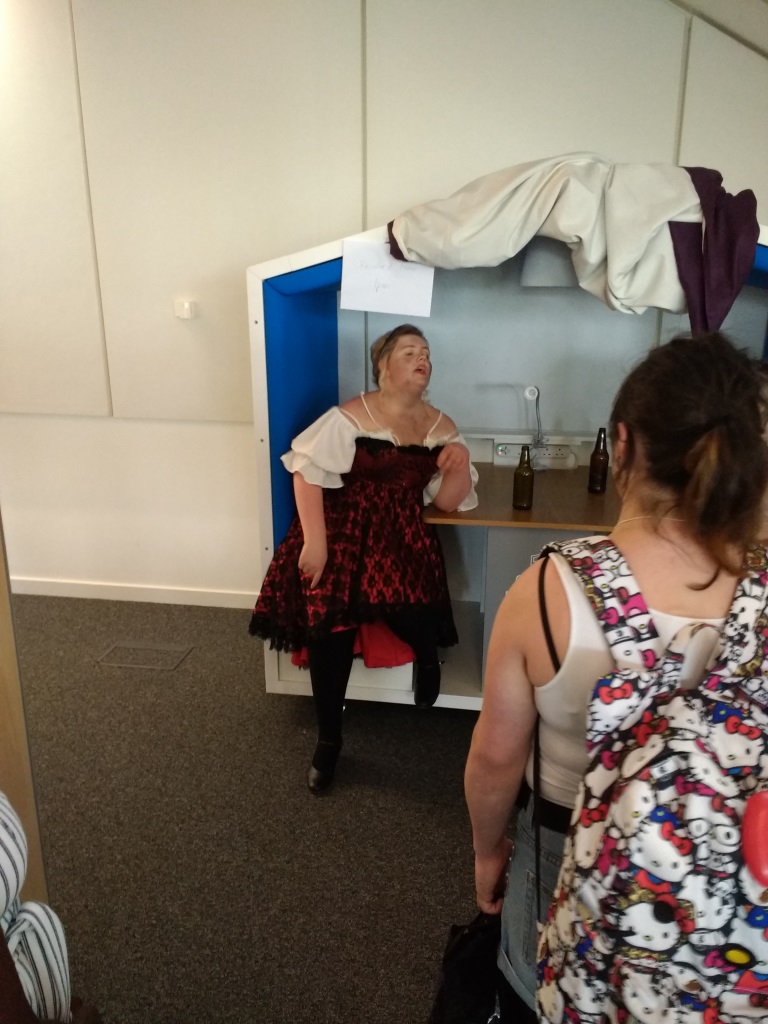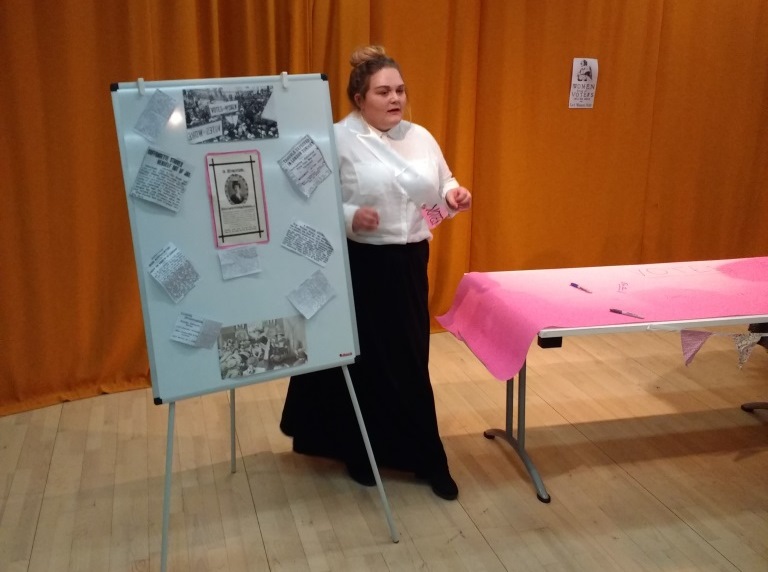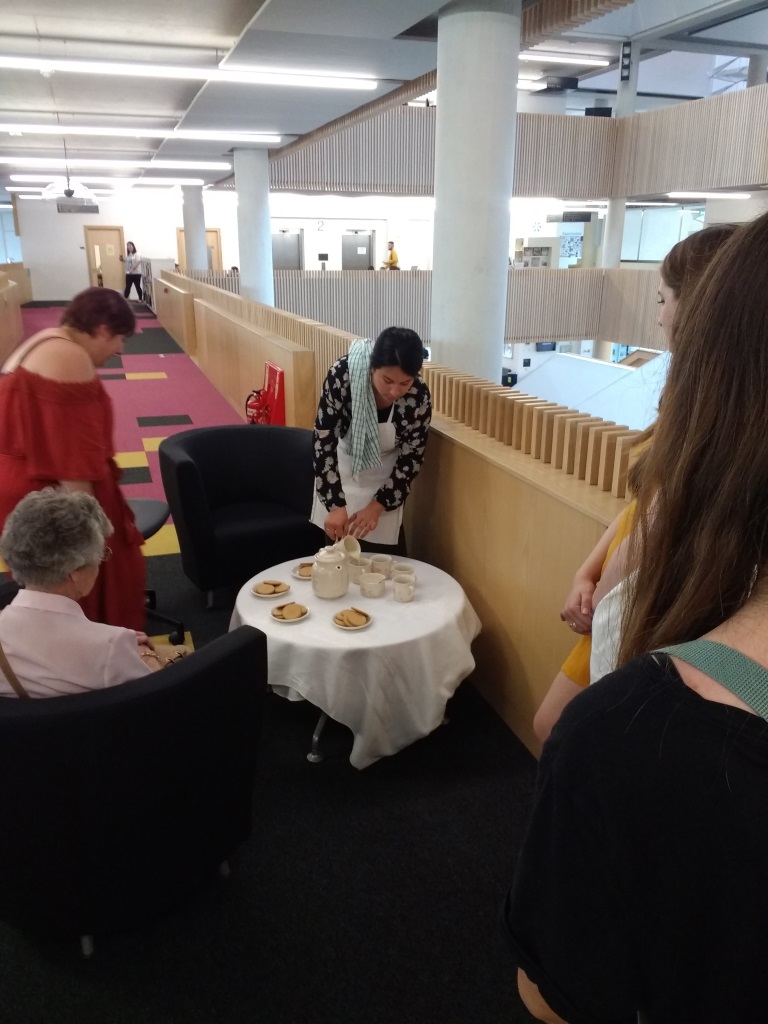Drama in the Archives
- 29th May 2018
Our archives contain over 12 miles of shelving with thousands of boxes. These boxes contain all sorts of stories, and can be the inspiration for all sorts of creative writing. Various films, TV dramas, books and plays have used archives and the stories they contain as their basis, and we are keen to encourage people to take advantage of them.
Before Christmas the course leader for a University drama module, ‘Theatre, Real Lives & History’ asked to work with us. As part of the course students would work in small groups with a historic venue to produce a performance piece, as a response to the archives, location and stories they contain. We immediately said yes, as it’s great having students come and use the resources with fresh eyes.
In February, students came for a workshop to find out about the types of sources we have, some example stories and how to use the archives. After getting their Archive card they began looking into possible stories for their project. Potential ideas were then passed to us, to check there was enough material to base their piece on, and then they spent the next couple of months preparing.
Two sets of performances were produced and performed, with a few members of the public joining the audience of fellow students and the all-important examiners! Each session began at The Infirmary then moved to The Hive, before ending at Tudor House on Friar Street.

C19th sex worker telling us about her life
The first piece at The Hive looked at the experiences of different women through the ages. In this case the original inspiration was the suffragette exhibition we’d had on, which the performance used as a basis to explore a range of experiences and stories. We went to level 0 to meet a C19th sex worker, up to level 1 to hear a Suffragette encourage us to support the campaign for Votes for Women, and then meet a C20th housewife on level 2 for tea and biscuits. The performance ended with us going to the original archive area to briefly see the students going through the index boxes, as they linked their stories to the archives that had inspired them. The second group were drawn to a story we’ve featured ourselves a few time (and can currently be seen in the cabinets on level 2) – the theft of 20 ducks in Badsey by Thomas Hemming in 1821. Witness statements, newspaper reports and other documents combine to tell the story beyond the core details. In The Studio, the court case was re-enacted using original statements as the basis for the script, although expanding on them to suggest mitigating factors and aspects not covered by the court records. Before the sentence was delivered we as the audience were invited to discuss among ourselves what we thought was appropriate. Using calendars of prisoners (lists of prisoners with their crime and sentence), they listed other cases over the years to highlight changes in attitudes and sentencing to different crimes, before announcing that Hemming was sentenced to 6 years transportation to Australia.

Suffragette asking the audience to sign the petition

Witness statement from Joseph Jones about the theft of his ducks by Thomas Heming
It was fascinating to see what the students chose, and then how they used the material as inspiration, especially as none of them had ever used archives previously. They enjoyed delving into the collections and being able to find out about real life stories. Archives are for everyone and have many uses. We hope that people, and especially students, will continue to use them for creating writing and artwork in the future too.

A housewife serves us tea and biscuits as she tells us about her life
Very interesting use of archives, indeed. I enjoyed reading your article. Hope this will serve as an example to many universities.